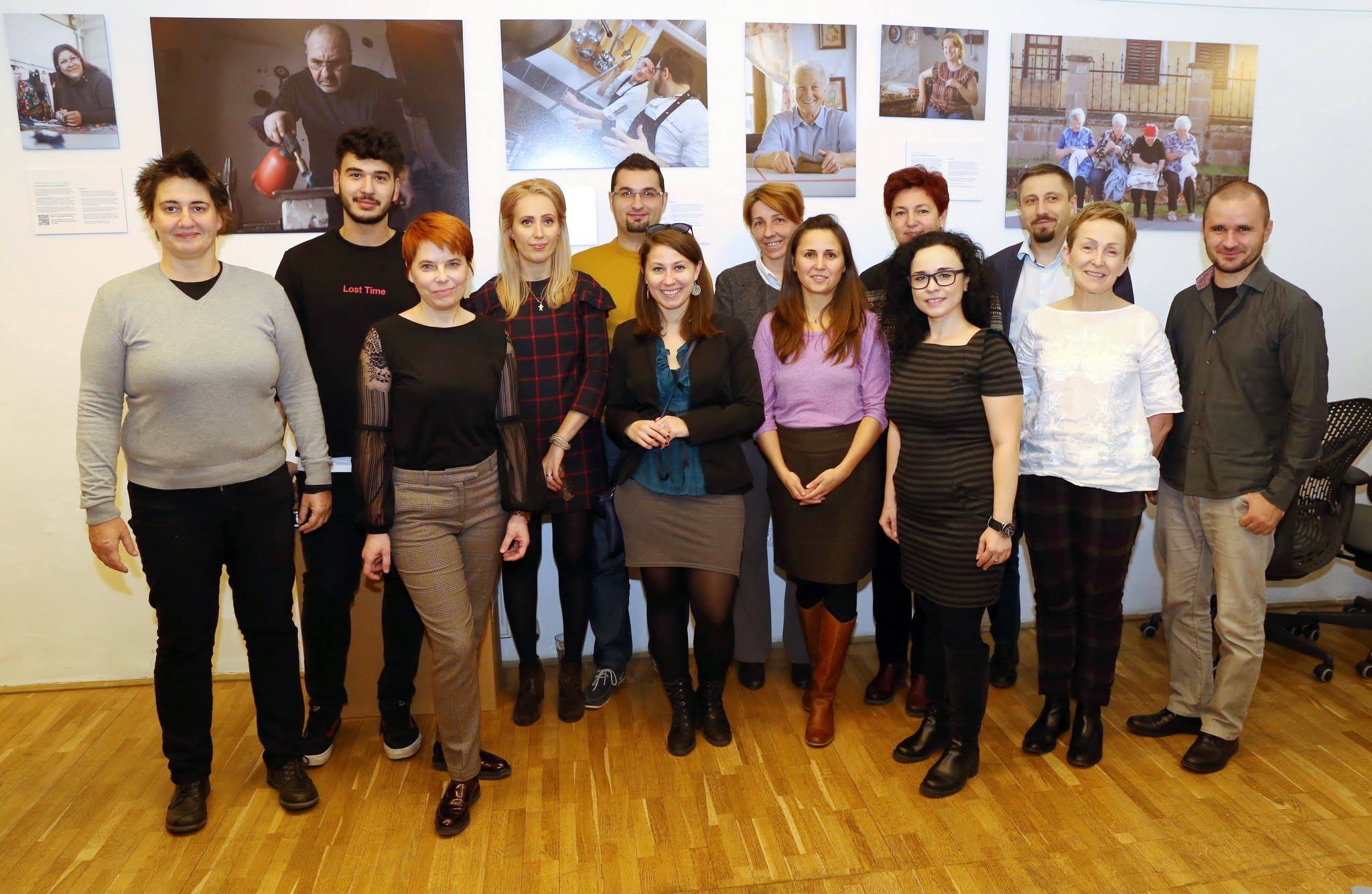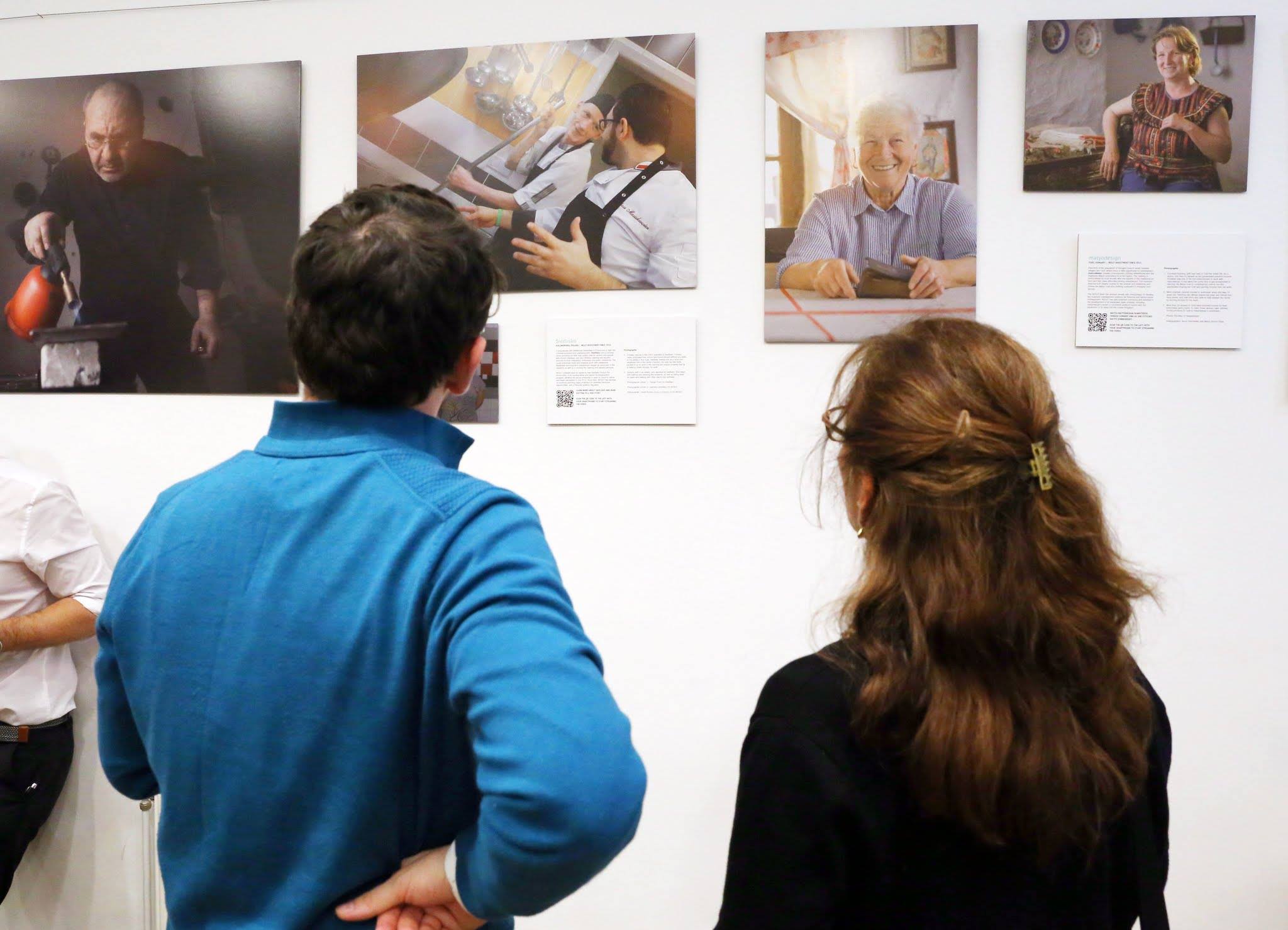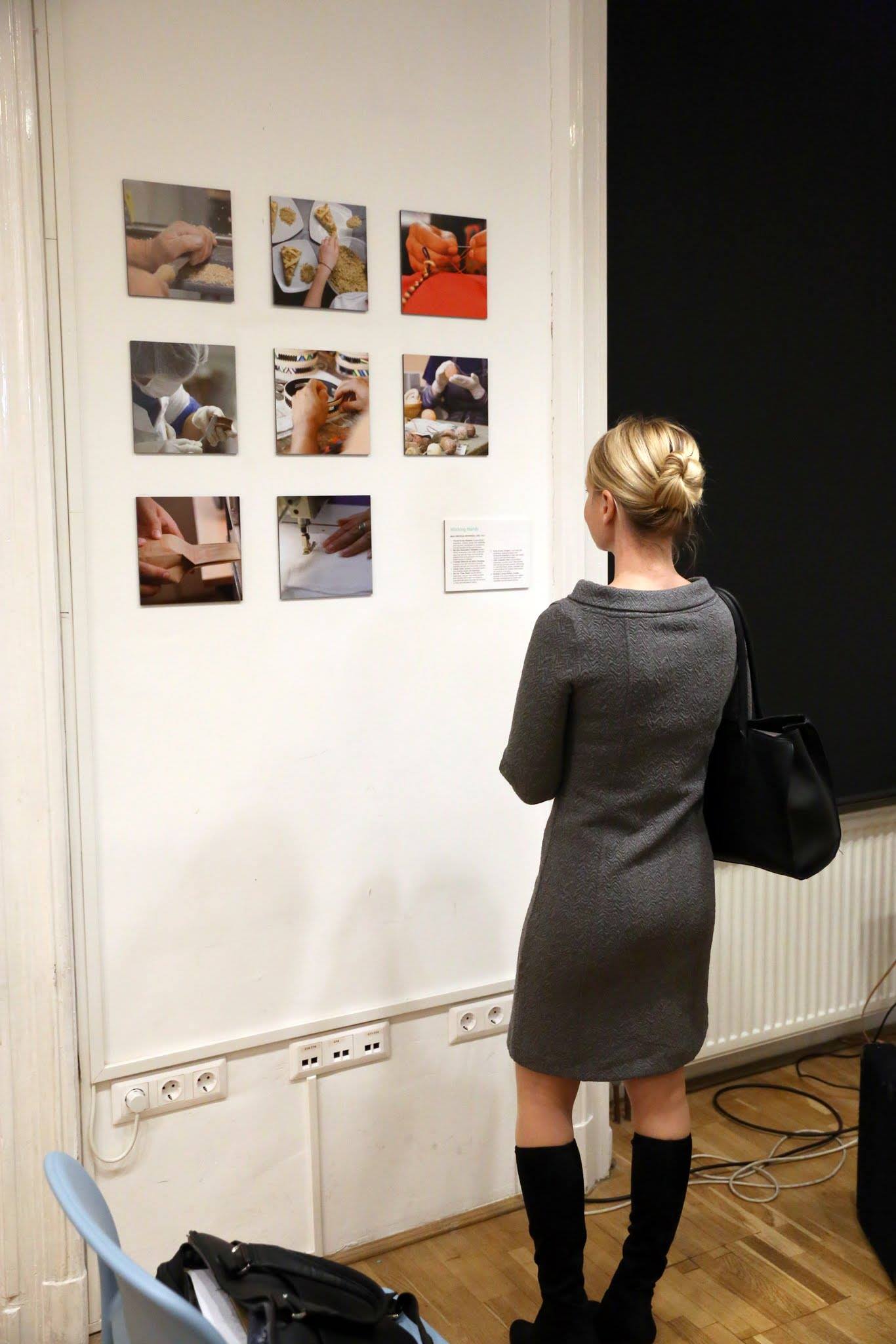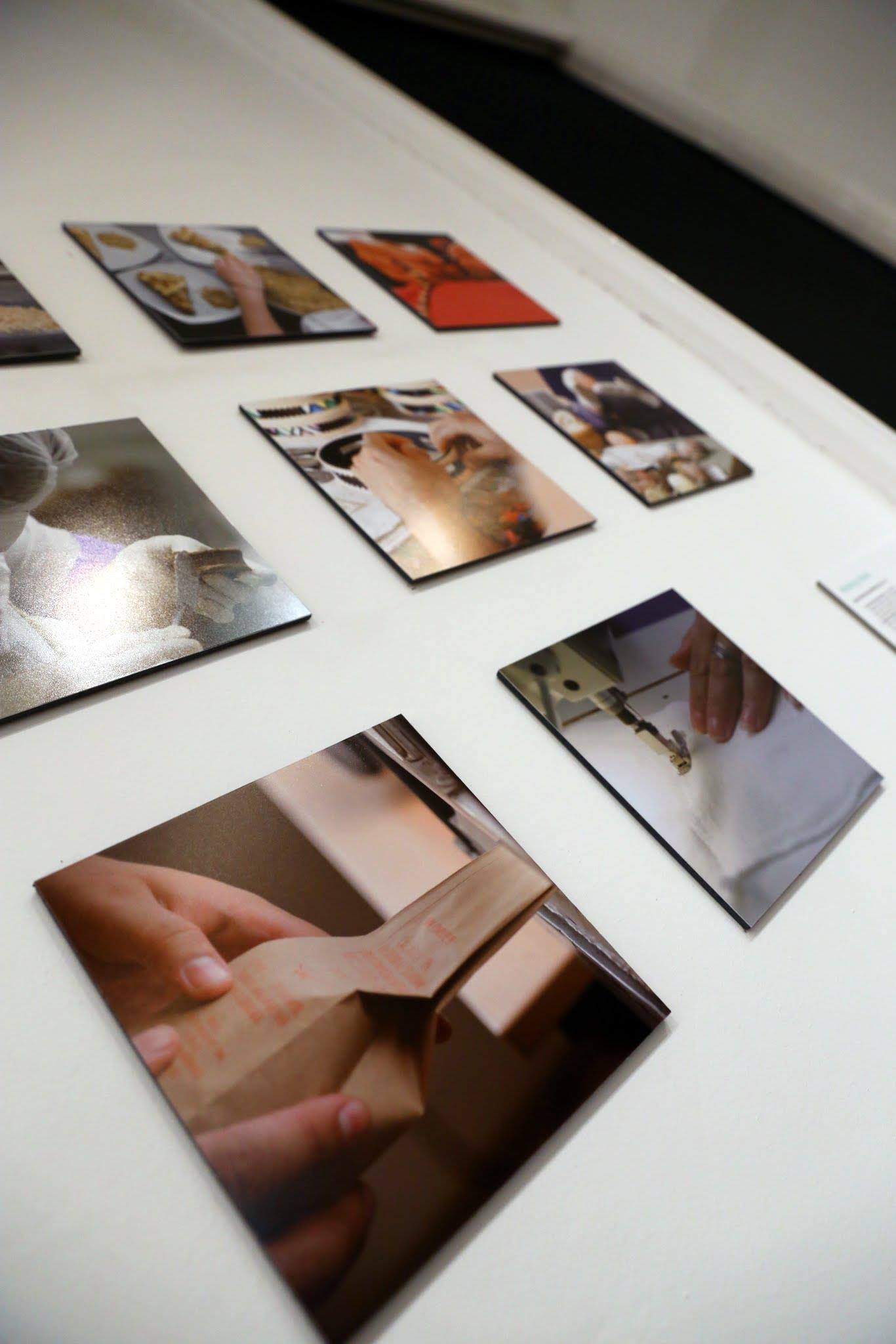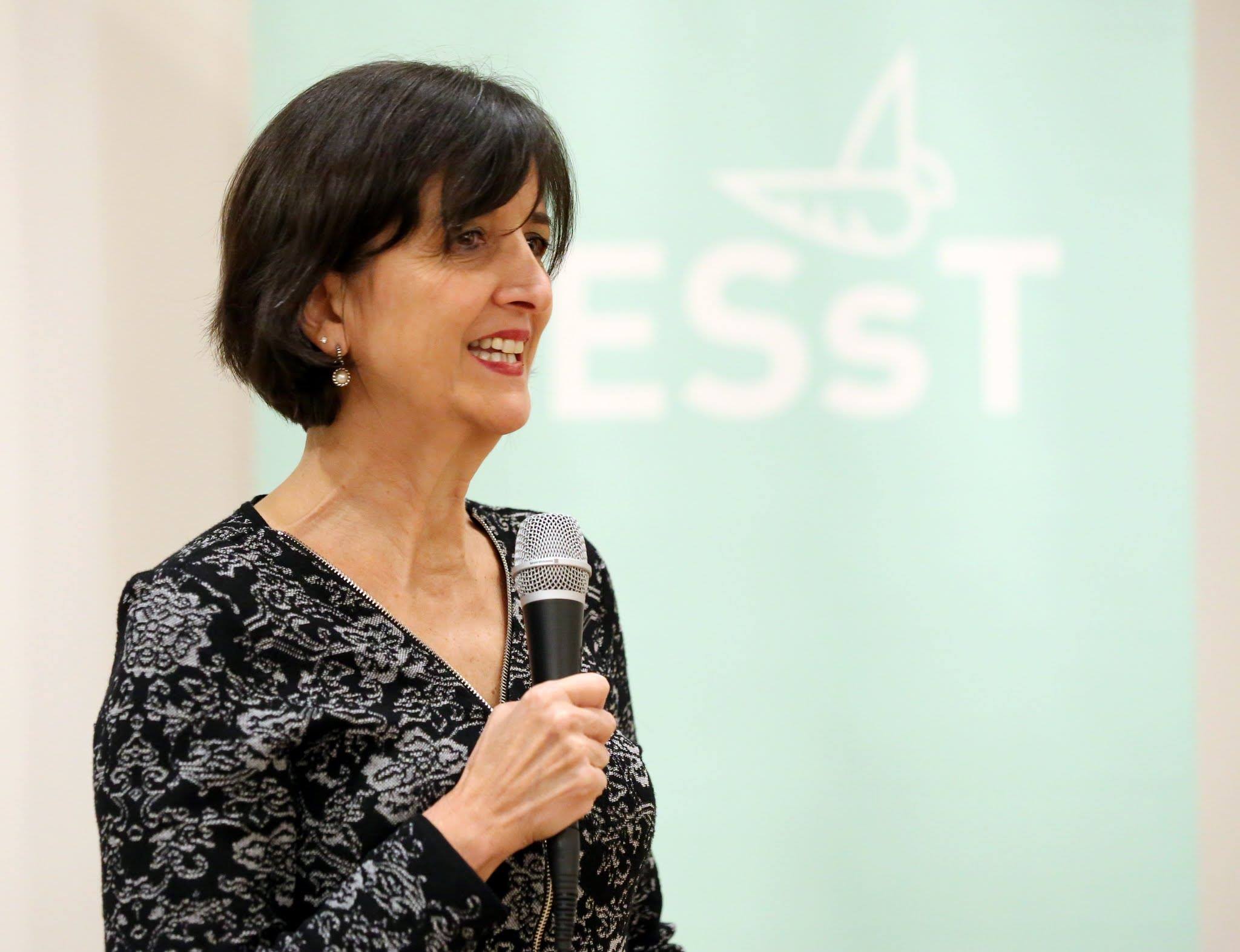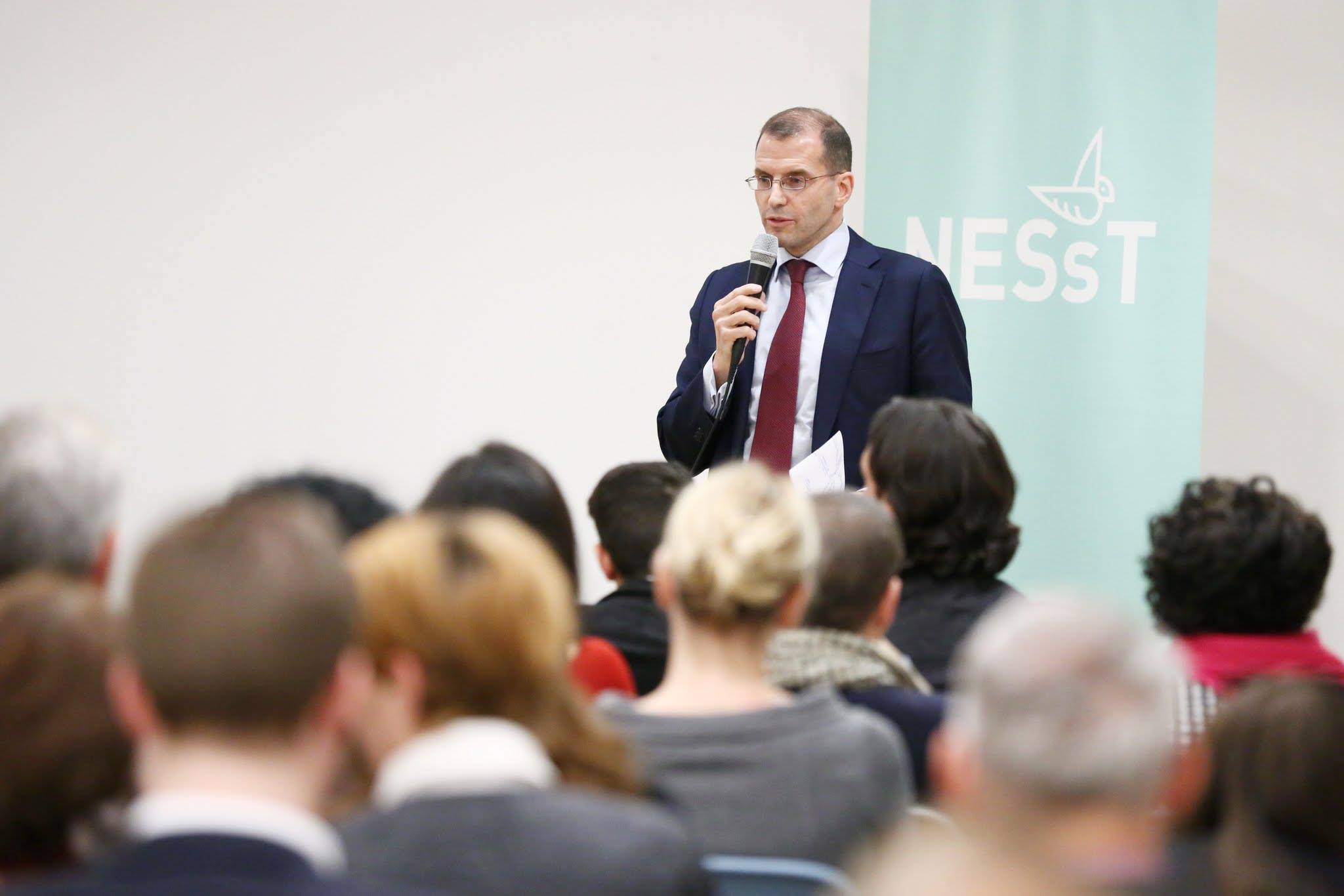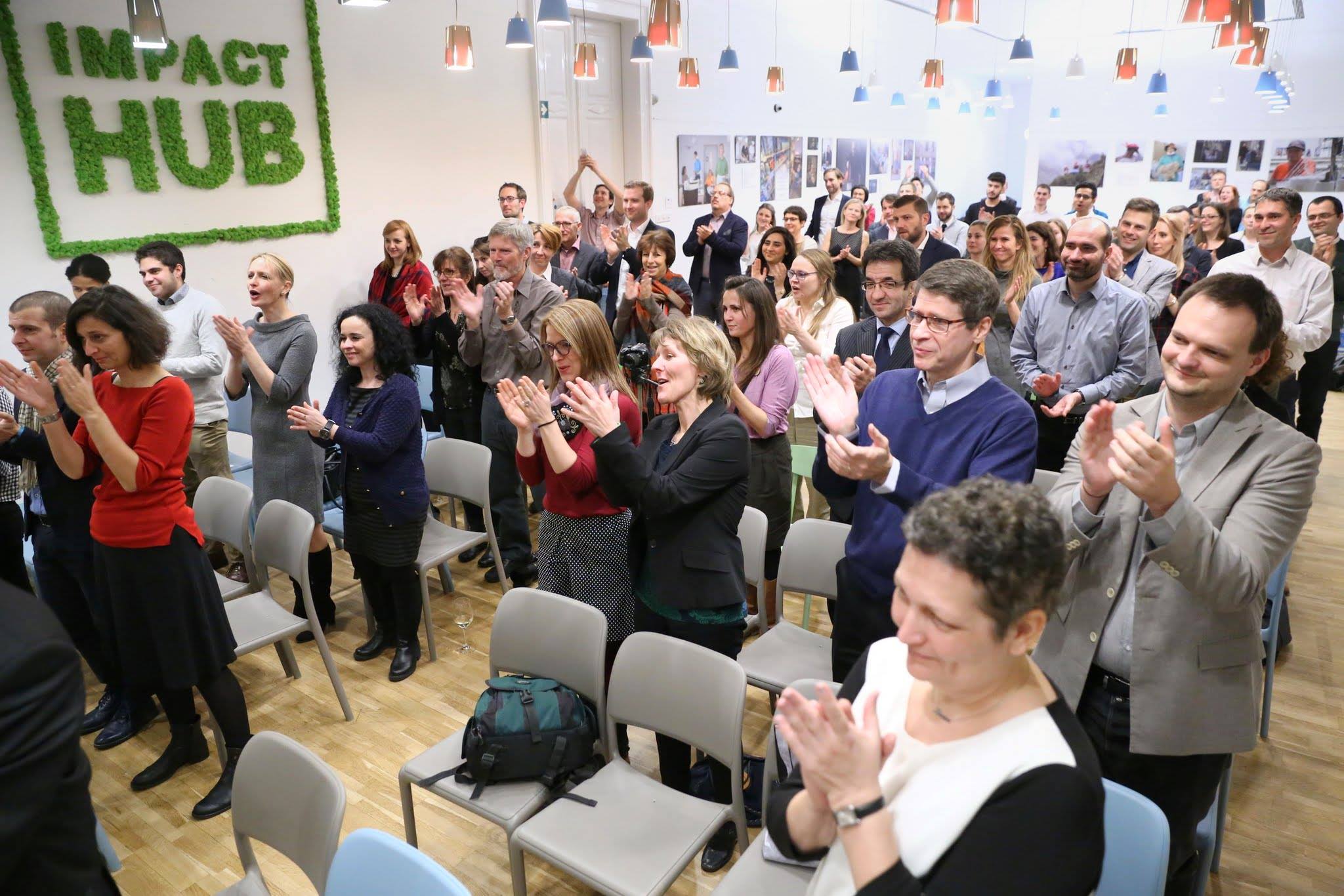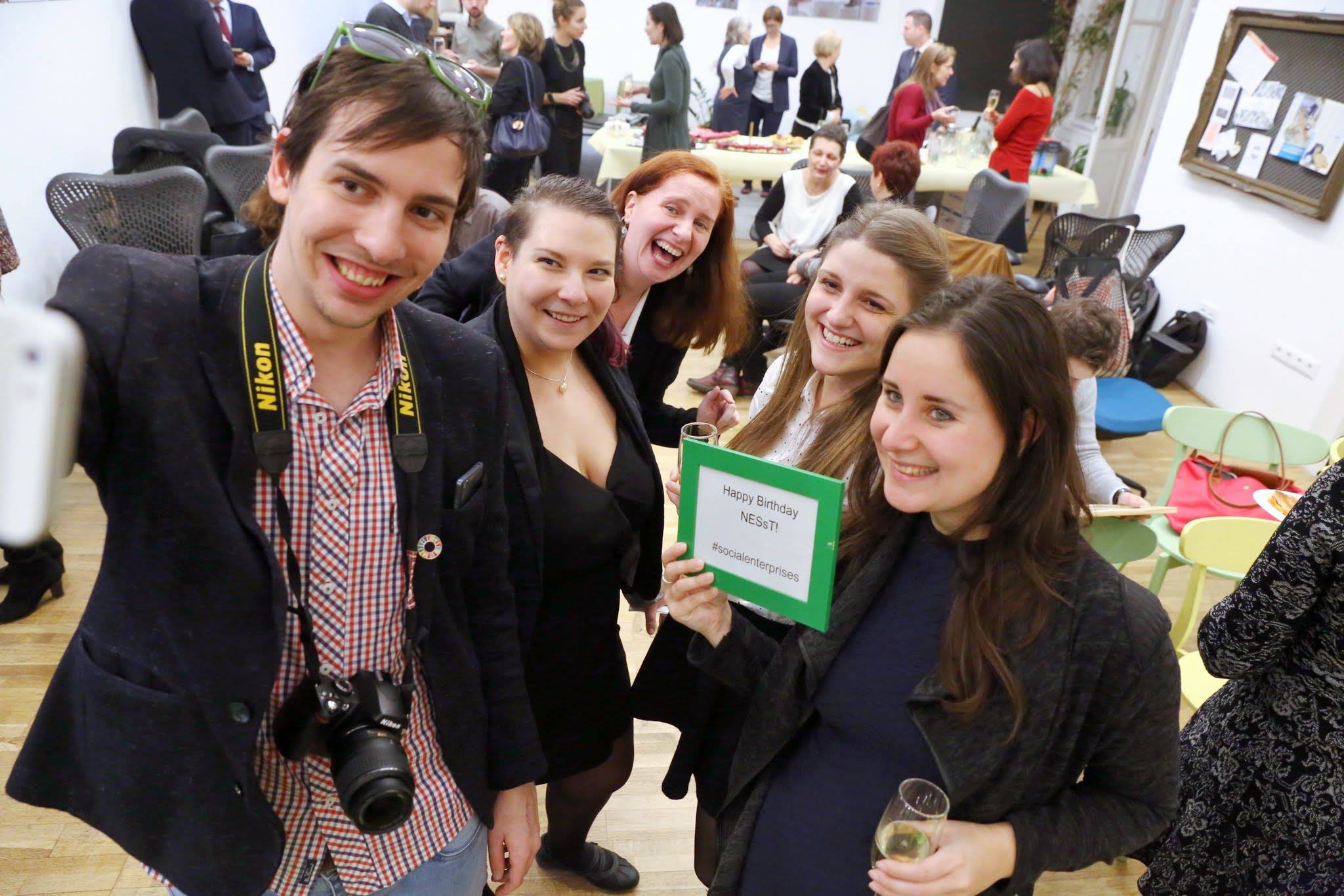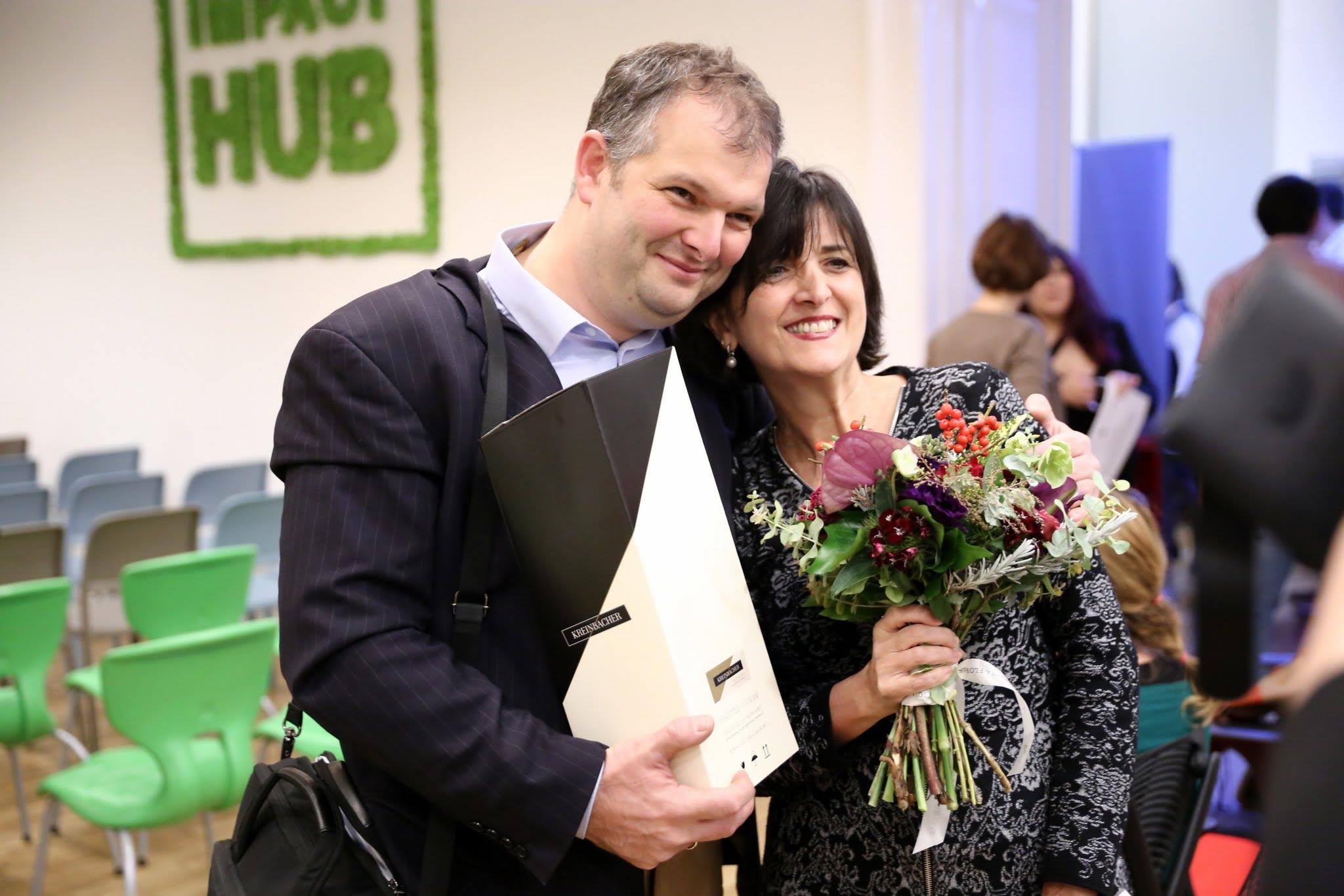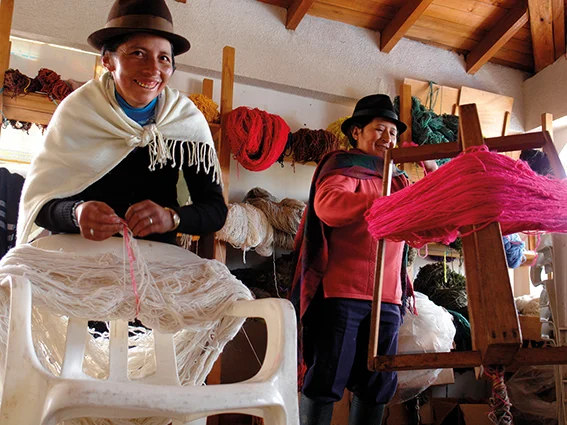In celebration of our 20th anniversary, NESsT hosted a photo exhibition and reception reflecting on 20 years of social enterprise at the Impact Hub Budapest.
The event gave our community the opportunity to look back at the early days of social entrepreneurship in Central and Eastern Europe and explore a future where all have access to good jobs, reliable income and the ability to create better futures for their families and their communities.
The #NESsT20: Enterprising Solutions, Dignified Futures photo exhibition is available for viewing at the Impact Hub Budapest from November 10-30, 2017.
Can't catch the #NESsT20: Enterprising Solutions, Dignified Futures Photo Exhibition in person? Check out the a virtual experience below.
Early Years at NESsT
NESsT WAS FOUNDED BY SOCIAL ENTREPRENEURS LEE DAVIS AND NICOLE ETCHART IN 1997. THE SAME YEAR, NESsT OPENED ITS FIRST REGIONAL OFFICE IN BUDAPEST, HUNGARY.
After the fall of the Berlin Wall, many donors entered Central and Eastern Europe to support new nonprofit organizations that emerged to solve key social problems in the region. By 1997, many of these donors began to exit the region and withdraw their support. NESsT was founded to provide these social organizations with the tools and capital needed to launch sustainable businesses, while addressing poverty and exclusion in the region.
Two years later, NESsT hosted the NGO Venture Forum and released Profits for Nonprofits, a publication focused on the need for social enterprise in Central Europe.
In 2000, NESsT launched its first business plan competition. NESsT went on to launch 50 of these competitions to accelerate the best social enterprise ideas.
Expansion to Latin America
NESsT EXPANDED TO LATIN AMERICA IN 1999 AND OPENED A NEW OFFICE IN SANTIAGO, CHILE.
As Central and Eastern Europe was undergoing this transition to democracy, a similar process was taking place in Latin America. These countries were emerging from years of authoritarianism, and civil society remained fragmented as international foundations and agencies were starting to also withdraw. These organizations needed to strengthen their financial sustainability in order to continue their important work of addressing poverty and exclusion.
Over the next few years, NESsT worked to build the social enterprise ecosystem in Latin America. It hosted the Social Enterprise Forum in 2002 and the Latin American Social Enterprise Symposium in 2006, and published multiple books on social enterprise best practices and lessons learned.
Between 2007 and 2009, NESsT significantly grew its portfolio in Latin America, supporting social enterprises in Argentina, Brazil, Chile, Ecuador and Peru.
Central and Eastern Europe Today
KÉK MADÁR ALAPÍTVÁNY | SZEKSZÁRD, HUNGARY
Only 14% people of people with intellectual or physical disabilities in Hungary have jobs. The lack of meaningful work opportunities results in isolation, low income and lack of access to basic services.
In 2007 Kék Madár Alapítvány opened a restaurant called Ízlelő that provides employment for people with disabilities. Currently, 90% of its staff has some form of disability. The restaurant also offers vocational education for people with disabilities, giving them the skills they need to secure jobs in other restaurants or catering businesses. The restaurant recently expanded and is planning to replicate its model in two other locations in the next three years.
NESsT has supported Kék Madár from its earliest start-up days through its current plans to scale the business. NESsT invested start-up capital via a grant in Kék Madár to help it launch Ízlelő, housing it in a portion of the foundation's office building.
Three years later, the restaurant was a success, and the Kék Madár team looked to expand it to serve more customers and employ a greater number of people with disabilities. NESsT provided Kék Madár with a low-interest loan to purchase a new facility for its office, allowing Ízlelő to expand, renovate and relaunch its restaurant and catering services in the original building. The NESsT portfolio team in Hungary also supported Kék Madár in developing key systems for managing performance, finances and client satisfaction over the years.
Photos Courtesy of Kék Madár Alapítvány
MESTESHUKAR BUTIQ | BUCHAREST, ROMANIA
As an ethnic minority, people from Roma communities face high levels of discrimination and prejudice that limit their access to employment. With the accelerated disappearance of the traditional Roma artisanship, they also risk losing a piece of their cultural heritage and traditions.
Mesteshukar ButiQ (MBQ) is a network of social enterprises and small workshops of Roma artisans. MBQ designers create contemporary products – including home décor, jewelry and clothing – that rely on traditional production techniques and influences of Roma culture. The products are sold in the MBQ shop in Bucharest.
NESsT has focused on helping MBQ to refine its business model and develop a solid financial model. The NESsT portfolio team has also supported MBQ in building and implementing a sales plan and accessing new distribution channels.
Photographer: Matei Pleșa (www.mateiplesa.com) for Mesteshukar ButiQ
SIEDLISKO | KOLONOWSKIE, POLAND
Young people with intellectual disabilities in Poland are at high risk of social exclusion and unemployment. Siedlisko runs a nursing home providing full-time high quality care for seniors and people with chronic illnesses, and also delivers catering and laundry services to local companies, individuals and public institutions. The social enterprise trains and employs youth with intellectual disabilities and long-term unemployed people as caregivers of the residents as well as in running the catering and laundry services.
NESsT invested start-up capital to help Siedlisko finalize the construction of its nursing home and launch its employment program, allowing the social enterprise to open its doors to clients and begin operations in July 2015. Since then, NESsT has advised on business planning, legal protection for potential franchise opportunities, and a financial systems migration.
Photographer (left photo): Teresa Truch for Siedlisko
Photographer (right): Gabriela Cichowicz for NESsT
One-third of the population of Hungary lives in small, isolated villages like Tard, where there is little opportunity for employment. matyodesign creates contemporary clothing embellished with the traditional Matyó embroidery from the region. The clothing is embroidered by local women who are experts in this traditional art form and who have difficulties finding employment. The business ensures both steady income for the women and preserves and shares the Matyó craft with clothing customers in Hungary and abroad.
The NESsT team has worked closely with matyodesign to develop key business management systems for finances and performance management. NESsT has also provided mentoring and assisted in the development of an expanded sales strategy, including matyodesign's recent e-commerce platform launch and the expansion of its sales into the United Kingdom.
Latin America Today
In the Andean Highlands, there are few opportunities for employment and reliable income for the subsistence farmers that live in these small, remote villages. Inka Moss is the only Peruvian company that collects and processes, in a sustainable way, sphagnum moss – a natural product that is in high demand by international orchid growers. The company trains these small farmers to collect the moss and become suppliers in its value chain. The company provides them with fair wages, training, technology, materials and tools, as well as infrastructure development in their communities.
NESsT has provided investment to help Inka Moss purchase equipment to expand production lines and improve collection processes for its suppliers. The NESsT portfolio team has been advising the enterprise on its growth strategy and has helped it to leverage funding from co-investors to support this expansion.
Photographer: Ana Elisa Sotelo (www.anaelisasotelo.com) for NESsT
Every year, the textile industry in Brazil produces 175,000 tons of textile waste. Retalhar is a social enterprise that specializes in recycling used textiles to make corporate gifts and blankets. The firm offers corporations with an easy way to dispose of their used uniforms and other textiles, helping them to meet environmental regulations. At the same time, Retalhar trains and contracts women from low-income communities to produce the upcycled gifts and blankets, increasing their household income and livelihoods.
NESsT has focused its investments on strengthening the Retalhar team, including hiring for key positions, as well as improving the processing center to ensure the company is poised to achieve greater sales and impact.
Photographer: Renato Stockler for Divulgação Folha de São Paulo
Many small producers of alpaca wool in Peru are unable to generate enough income to support their families. Suritex is a social enterprise that lowers the cost of processing raw wool fiber through solar-powered technology and passes on savings by buying the product from the alpaqueros at fair market price. Suritex also trains women from the local community in all areas of textile production and pays them a fair wage to work in its processing plant.
NESsT has helped Suritex improve its production capabilities through the design, validation, manufacturing and installation of solar-powered collectors at its textile plant. The NESsT team has also helped the company refine its business model to build on these improvements and pass the realized savings back to the producers, leading to higher margins and improved livelihoods.
Photographer: Ana Elisa Sotelo (www.anaelisasotelo.com) for NESsT



